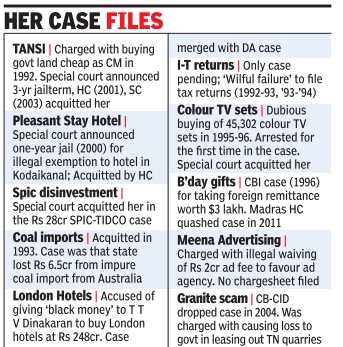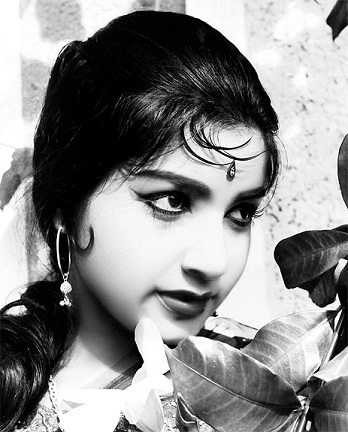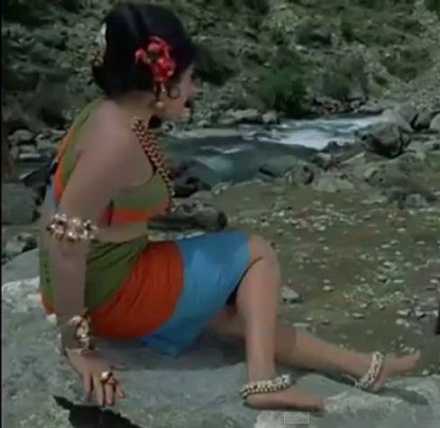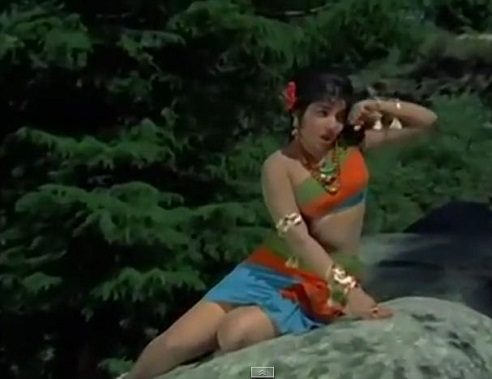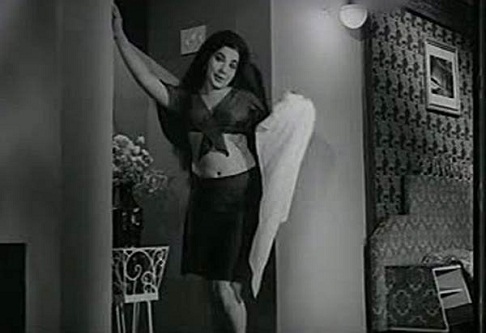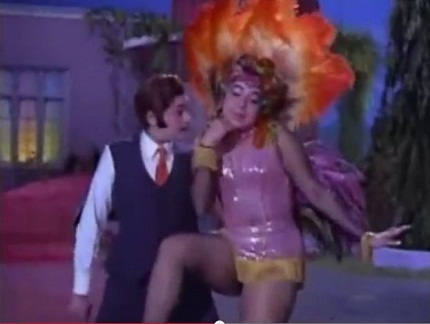Dr. J. Jayalalithaa

This is a collection of articles archived for the excellence of their content. |
Contents |
Dr. J. Jayalalithaa
The disproportionate assets case
Lavish wedding that entangled Jayalalithaa in 18-yr-long trial



The Times of India TIMES NEWS NETWORK Sep 28 2014
CM's Vulgar Display Of Wealth Did Her In
The month of September is when Chennai seems to finally shake off the blistering heat of its summer. September also holds significance for the Dravidian movement, the city's governing ideology .Both the parties gear up to celebrate the birthdays of the big ones of the movement -Periyar and Anna -in grand style.
For nearly a year before the September of 1995, there had been whispers, including in the media, of massive corruption taking place in the AIADMK regime. A Wednesday that month seemed to prove those allegations.
The judgement
TN'S AMMA IS NOW JAIL-LALITHAA - Tough decision & a massive fine
The Times of India A Subramani Sep 28 2014
While many expected conviction in the Rs66.6 crore disproportionate assets case against Jayalalithaa and others, few were prepared for the fury of the judge, John Michael D'Cunha. He found all the four guilty of all the three charges against them. Then he sentenced them to “four years -which would deny them the immediate benefit of suspension of sentence“.Then, more importantly, he slapped a mind-boggling fine -Rs 100 crore “on Jayalalithaa and Rs10 crore each for the other three. Not stopping with that, he denied private medical facility for the TN CM outside jail campus. It is small mercy that he did not impose the maximum prescribed sentence of seven years, and, instead, limited himself only to four years.
“We could not believe that the judge did not show even an inch of leniency to the accused. Also, he accepted none of the defence arguments. It is a conviction, lock, stock and barrel,“ said a defence team member. Perhaps justifying the Rs 130 crore fine, the judge told a stunned defence team: “Do you know the present value of the seizedattached properties? I am leaving that to your imagination.“
Making a last-ditch effort to win a reprieve, the defence team even claimed that Jayalalithaa's conviction would result in a “constitutional crisis“ in TN, and that the 18-year case had made her a diabetic. When the judge remained unmoved, the defence pleaded for NSG protection for Jayalalithaa, a Z-plus category VVIP, inside jail saying she faced grave threat to her life from LTTE and fundamentalist organizations whom she had eradicated from TN. None of these arguments cut ice with the judge.
It may be bad timing for Jayalalithaa that the case should drag on for 18 years and culminate a year after the SC knocked off a protective shield available in the Representative of the People Act for sitting MPs and MLAs, like her.
“If only Section 8(4) of the Act was still alive on the statute, she would not lose the posts instantly . Or, had this verdict come before the SC ruling she would've been spared, as the SC applied it only retrospectively,“ said a jurist. Of course, since it is more than three years, she would have still ended up in jail the same evening when the verdict was read out, he added.
Rule of immediate disqualification
Jayalalithaa ceased to be an MLA with immediate effect. In convictions under other Acts and the IPC, only a sentence of over two years attracts disqualification. But if, as in this case, conviction is under the Prevention of Corruption Act, disqualification is immediate, irrespective of the quantum of jail term. TNN
The wedding of her foster son
The city witnessed a wedding celebration never before seen. It was the wedding of chief minister J Jayalalithaa's foster son. The baraat route was nearly 2km long.There were 10 dining halls, each seating nearly 25,000.Diamonds were a common sight, not among the people, but on Jayalalithaa and her associate Sasikalaa. The marriage pandal sprawled over 75,000sqft. It was clear the state machinery had been deployed in full force to make this happen.
That the groom's brothers, nephews of Sasikalaa, were under investigation by central agencies for involvement in hawala deals only seemed to reinforce public distaste.“There were several complaints of corruption against her regime in 1991-96. But, from public perception, it was the vulgar display of wealth in the wedding that turned the tide against her,“ said S Murari, a journalist who watched Jayalalithaa's film career pan out in the political arena.
Subramanian Swamy was among the first to crusade against her government. In 1995, he finally got Governor Channa Reddy's sanction to prosecute Jayalalithaa in two cases, including the Tansi case.
A successful actress who had a long innings in films, Jayalalithaa came from money . Yet, with the wedding and her dismissal of criticism of the ostentation, she ended up playing into the hands of her adversaries.
Political career
In her first term, she came across as imperious and impervious to people's concerns. The outcome of the elections that year was historical. The main opposition teamed up. A faction of Congress, the Tamil Maanila Congress, led by G K Moopanar, defying the party's decision to align with AIADMK, joined the DMKled front. Adding strength to the DMK-TMC alliance, superstar Rajinikanth campaigned in its favour, coining the catch phrase, `Even God can't save Tamil Nadu if you vote for Jayalalithaa', which became a legend.
It was a total rout for Jayalalithaa and she herself was defeated in Bargur constituency to a political novice from DMK. The crowds she got in Bargur when she campaigned comprised mostly women, some of whom said they had come only to see the jewels Sasikalaa was wearing.
Faced with charges of corruption, Jayalalithaa had vowed not to wear a single piece of jewellery until she got back her collection seized by the courts.
Dr. J. Jayalalithaa: political comebacks
TEMPORARY FALL? - `Don't write her off yet, she's bounced back before'
The Times of India TIMES NEWS NETWORK Sep 28 2014
Stepping out of her car in front of the Parappana Agrahara prison near Bangalore to hear the DA case verdict a little before 11am on 27 Sept 2014, Jayalalithaa is said to have told her driver she'd be back around 12.30pm and return to Chennai. That was not to be, but it revealed her attitude.
Some may call it temerity, but it was this quality that helped her surmount several adversities, personal and political, to bounce back to relevance -and power. If her resurrections are anything to go by, Jayalalithaa is a phoenix who has had another fall.
Jayalalithaa has fought and won a dozen cases between 1996-2014, but the DA case -given the legal and political implications -may prove the toughest.
The last time she had to relinquish the CM's post, in 2001, she had the luxury of having just come to power She came back after a Chennai trial court convicted her in the TANSI case of September 2001.
A decline in the political career


Jayant Sriram
October 9, 2014
Jayalalithaa's delaying tactics have ensured there is no easy way out for her
An hour later, those cheers of joy turn into anger as news arrives that the court has denied bail. Within minutes, AIADMK workers organise street protests and sit-ins. Outside Jayalalithaa's Poes Garden residence, hundreds of women hold the railings and wail. Scenes reminiscent of the day the former chief minister was convicted. Trial and punishment is nothing new for her but the growing anxiety among her supporters stems from the realisation that there is no easy way out this time.
When she was elected as chief minister for the first time back in June 1991, Jayalalithaa's assets were declared at almost Rs.3 crore. Five years later, they had zoomed up to nearly Rs.66 crore. This sudden growth had not gone unnoticed, and there were those waiting to take her down. In 1996, Jayalalithaa and the AIADMK were humiliated by the DMK in the Assembly elections-221 to four. A big part of their election campaign was their promise to bring to book all those who had indulged in corruption during Jayalalithaa's first term. Several cases of corruption were slapped on her by the new government. Along with them, a private complaint was filed by then Janata Party leader Subramanian Swamy in 1996, claiming that she had acquired a disproportionate amount of wealth during her term as chief minister.
This September 27, Jayalalithaa, in the middle of her third and most successful spell as chief minister, was pronounced guilty by a special court hearing the disproportionate assets (DA) case and sentenced to four years in prison. Unless the verdict is reversed in appeal, she will be unable to contest elections for 10 years, a consequence that could alter Tamil Nadu politics forever. Five parliamentary elections were held during the pendency of the DA case. The special court hearing her case in Bangalore had five different judges. Jayalalithaa has fought many battles and, by all accounts, had even learnt the lessons of the past. But it was the alleged excesses of those first few years in power that have finally been her undoing.
The investigation
The Tamil Nadu Principal Sessions Judge asked the police to investigate Swamy's complaint and an FIR was filed by N. Nallamma Naidu, superintendent of police, Directorate of Vigilance and Anti-Corruption, in September 1996. Naidu and his team of investigators uncovered several illegal land deals within a few months, meticulously charting the money trail involving the various shell companies which were used to purchase land by the former CM and her associates Sasikala Natarajan, J. Ilavarasi and V.N. Sudhakaran. Many of these companies were found to be registered out of 36 Poes Garden, Jayalalithaa's official residence. The team had a warrant to search her house but decided to wait.
They then had a stroke of luck. In December 1997, the Crime Branch Criminal Investigation Division (CBCID) which was conducting an investigation into another case filed against the AIADMK leader-of alleged financial irregularities in the procurement of colour TVs for village panchayats-decided to raid her house and arrest her. The vigilance officials then turned up to famously discover 1,000 pair of shoes, 25 kg of gold, and 800 kg of silver, among other things.
Even as a detailed charge sheet was being filed in court against Jayalalithaa and her three associates for illegal wealth amassed in India, the DMK found possible links to another set of transactions carried out in the UK for Jayalalithaa through Sasikala's nephew TTV Dinakaran. The case was already being investigated by the Enforcement Directorate but the Tamil Nadu team joined in. By 2000, they thought they had discovered evidence of a hotel and a resort bought illegally in the UK. A charge sheet was promptly filed and the DMK put a lot of faith in the London Hotels case believing that it uncovered an even bigger trail of corruption and illegal land deals.
Trial and delay
Meanwhile, the DA case had started in 1997, and the first problem arose when the Tamil Nadu Principal Sessions Judge declared that he had too many cases before him and asked for additional special courts to be set up to hear corruption cases against politicians. Three additional courts were set up but Jayalalithaa and her co-accused challenged the constitution of these courts and their competence to hear the cases.
Alongside these challenges, Sasikala asked that all the documents in the case be translated to Tamil as she did not understand English. A frustrated prosecution took the matter to the Supreme Court but finally gave in. Nearly a year was wasted in translating all documents and the trial commenced in 1999.
By August 2000, the prosecution had examined all 259 of its witnesses and it was now the defence's turn. It dragged its feet, barely managing to examine eight witnesses. Then, in the summer of 2001, the tables were turned. Jayalalithaa stormed back in the Assembly elections and, though she could not assume power due to her initial conviction in the TANSI case, was back as chief minister by 2002. The defence lawyers sprung into action. Seventy-six witnesses were recalled and 64 of them turned hostile, saying they had testified under pressure.
The Karnataka chapter
In 2003, the DMK became formally involved with the case, with the party's general secretary K. Anbazhagan filing a petition in the Supreme Court asking for the trial to be transferred out of Tamil Nadu. In November 2003, the Supreme Court ordered that the trial be moved to Karnataka and that day-to-day proceedings be conducted. "Be you ever so high, the law is above you," a bench of Justices S.N. Variava and H.K. Sema observed scathingly.
B.V. Acharya, a former advocate general appointed as special public prosecutor by the Karnataka government, immediately faced a setback when the London Hotels case was clubbed with the DA case. It came as a blow to the prosecution, which didn't have a strong enough case for London Hotels and viewed the two cases as separate money trails. In August 2005, the Supreme Court stayed proceedings to decide on the merger of the two cases. The stay would last five years.
The DMK, now back in power after the Assembly elections of 2006, decided to close the hotels case in 2009. In 2010, the prosecution was finally allowed to recall some of the witnesses who had turned hostile and get them to revise their statements. But further delays ensued as applications were moved by Jayalalithaa saying that she could not appear in the special court as the security provided by the Karnataka government was not adequate. Her co-accused, Sasikala, asked that a translator be appointed and that her answers be translated from Tamil to English. She then objected to the use of active voice instead of passive voice and vice versa.
To make matters worse, after Jayalalithaa returned to power in 2011, the Tamil Nadu vigilance directorate wrote to the court saying they would be carrying out further investigations in the case. The Supreme Court quashed this request, calling it an attempt to "frustrate the trial". By now, Acharya was also a target. He had been appointed as advocate general (AG) for a sixth time in 2011 and the accused contended that he could not act as AG as well as special public prosecutor. When Acharya chose to give up the AG's post, another complaint was filed in the state Lokayukta regarding irregularities in an educational trust that he was part of. The proceedings were quashed in the high court but an exhausted Acharya resigned as special public prosecutor in August, 2012.
Prosecuting Trouble
In February 2013, G. Bhavani Singh was appointed special public prosecutor in the case. Almost immediately, his role became shrouded in controversy. In August, the DMK moved a petition questioning the fairness of court proceedings under him. "The defence had suddenly reduced the number of its witnesses and we noticed that he had allowed the Tamil Nadu Deputy SP of Directorate of Vigilance and Anti-Corruption to be listed as a defence witness. Which investigating officer would appear as a defence witness?" asked a DMK functionary tracking the case.
When a complaint was filed against Singh in the Supreme Court, the Karnataka government intervened and removed him saying that his was not one of the names originally considered for the post. Then, in a surreal move, the accused moved an application to keep him on as public prosecutor as well as the judge who was to retire on September 30. "Nobody had ever seen a case where the accused asked for a certain prosecutor to stay on. Incredibly, the reason given was that the accused had a right to speedy trial," a lawyer present at the proceedings said.
The Supreme Court allowed Singh to continue but the judge in question, M.S. Balakrishna, chose to retire. After 17 years, the most significant moment in the case came in October 2013, when the Karnataka High Court appointed Special Judge John Michael D'Cunha. A former district judge who had been registrar of vigilance at the Karnataka High Court, D'Cunha ensured that the case moved without delay, finishing the remaining arguments in less than a year. In one notable instance, he even fined Singh Rs.60,000 for not turning up in court for two days.
The role of the public prosecutor Bhavani Singh continues to be controversial. According to news reports from Jayalalithaa's bail hearing in the high court on October 7, the prosecution had initially objected in writing to the accused being given bail. Later, inexplicably, they changed their stance to say they had no objection if the accused were given conditional bail.
The Karnataka High Court refused bail and, according to legal experts, no court is likely to give bail anytime soon given the nature of in the case. Even Lalu Prasad Yadav, they point out, was in jail for 10 months. In his case, the Bihar government notified a guest house as a jail, and kept him there in comfort. But with the proceedings moving out of Tamil Nadu, Jayalalithaa forfeited the chance of any such arrangement. She seemed to believe that there was no chance of a conviction or that the case would simply go on indefinitely. The road ahead looks far more difficult now.
Filmography
As an actor
1961 Epistle
1961 Shrishaila Mahatme
1964 Chindha Gambhe
1964 Mane Aliya
1964 Murudan Muthu
1965 Ayirathil Oruvan
1965 Kannithai
1965 Manashulu Mamatalu
1965 Nee
1965 Vennira Adai
1966 Aame Evaru
1966 Aastiparulu
1966 Badukuva Daari
1966 Chandorodyam
1966 Gowri Kalyanam
1966 Kumari Penn
1966 Lorry Driver
1966 Major Chandrakant
1966 Mani Makudam
1966 Motor Sundaram Pillai
1966 Muharassi
1966 Navarathri
1966 Saraswathy Sapadham
1966 Thanipiravi
1966 Yaar Nee
1967 Arasa Kattali
1967 Chikkadu Dorakadu
1967 Goodachari116
1967 Gopaludu Bhoopaludu
1967 Kandan Karunai
1967 Kavalkaran
1967 Madi Veettu Mappillai
1967 Magarasi
1967 Naan
1967 Raaja Veetu Pillai
1967 Thaikku Thalaimagan
1968 Andru Kanda Mugam
1968 Attagaru Kottakodalu
1968 Bagdad Gajadonga
1968 Bommalattam
1968 Buthisaligal
1968 Enga Ooru Raja
1968 Galatta Kalyanam
1968 Izzat
1968 Kanavan
1968 Kannan En Kathalan
1968 Kathal Vaghanam
1968 Kudiyiruntha Koyil
1968 Moonrezuthu
1968 Muthu Chippi
1968 Niluvu Dopidi
1968 Oli Vilakku
1968 Pannakarai Pillai
1968 Pudhiya Bhoomi
1968 Rahasya Police115
1968 Sri Ramakatha
1968 Sukha Dukhalu
1968 Ther Thiruvizha
1968 Tikka Shankaraiah
1968 Brahmachari
1969 Aadarsa Kutumbam
1969 Adimai Penn
1969 Adrushtavanthalu
1969 Daivamagan
1969 Gandikota Rahasyam
1969 Gurudakshinai
1969 Kadaladu Vadaladu
1969 Katha Nayakudu
1969 Mattukkara Velan
1969 Nam Naadu
1970 Alibaba 40 Dongalu
1970 Anathai Ananthan
1970 En Annan
1970 Enga Mama
1970 Engal Thangam
1970 Engiruthu Vandhal
1970 Pathukappu
1970 Saraswathi
1970 Shri Krishna Vijayam
1970 Thedi Vanda Mappillai
1971 Adi Parasakthi
1971 Annai Velankanni
1971 Bharya Biddalu
1971 Kumari Kottam
1971 Neerum Neruppum
1971 Oru Thai Makkal
1971 Savale Samali
1971 Shri Krishna Satya
1971 Sumathi En Sundari
1971 Thanga Gopuram
1972 Akka Thamudu
1972 Annamitta Kai
1972 Dharmam Enge
1972 Neethi
1972 Pattikada Pattanama
1972 Raja
1972 Raman Thediya Seethai
1972 Sakthi Leelai
1972 Thikku Theriyadha Katil
1973 Devudu Chesina Manushulu
1973 Dr. Babu
1973 Ganga Gauri
1973 Jesus
1973 Pattikatu Ponnaiah
1973 Suryagandhi
1973 Vandhale Magarasi
1974 Anbai Thedi
1974 Anbu Thangai
1974 Baghdad Perazhagi
1974 Premalu Pellilu
1974 Shanmugapriya
1974 Thayi
1974 Thirumangalyam
1974 Vairam
1975 Avalukku Aayiram Kangal
1975 Avanthan Manithan
1975 Baaghi Lutera
1975 Barah Ghante
1975 Cinema Paithiyam
1975 Pattam Bharathamum
1975 Thiruvarul
1975 Yarrukkum Vetkam Illai
1976 Chitra Pournami
1976 Gurudakshinai
1976 Jai Jagat Janani
1976 Kanavan Manaivi
1976 Tu Hi Kaali Tu Hi Durga
1976 Tu Hi Ram Tu Hi Krishna
1976 Unmaye Un Vilai Enna
1977 Amar Shilpi
1977 Shahzadi Mumtaz
1977 Shri Krishna Leela
1977 Soorya Kanthi
1977 Unnai Sutrum Ulagam
1979 Mata Velankanni
1980 Nadhiye Thedi Vandha Kadal
1980 Nayakudu Vinayakudu

